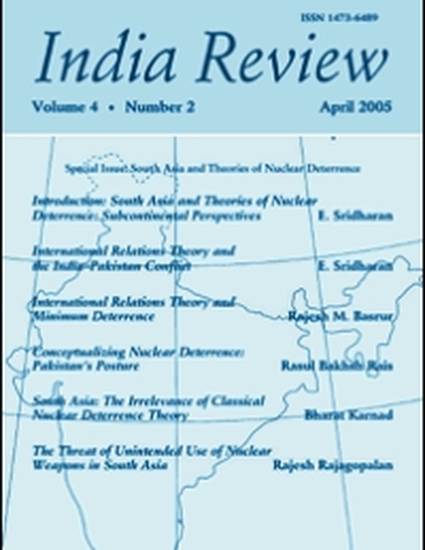
Article
Review: New Directions in India's Foreign Policy
India Review
(2012)
Abstract
The books reviewed in this article provide timely explorations of India's changing strategic and tactical goals in the current global, political, and economic environment. They provide us with insights into how various actors in the Indian political system are becoming more engaged in crafting new directions in India's foreign policy.
In India and the World Bank, Jason A. Kirk examines the evolving relationship between the World Bank and India. Basing his arguments on numerous interviews and archival research, the author does an excellent job of making a complex, even dense, topic engaging and accessible to the reader. He also makes the important, yet understudied, argument that the Bank's policies in India have undergone a significant strategic shift in the last two decades. There are two interrelated elements to this. First, subnational lending—a direct relationship between the Bank and specific borrowing states—has become more prominent. This is a change from previous decades when the World Bank would deal primarily, perhaps even exclusively, with the Indian central government. Second, the institution's subnational lending practices have also changed over the last decade. In particular, the focus of its aid and lending has shifted from reform-oriented, high-growth states to those that are economically and developmentally lagging. Taken together, this strategic shift says a great deal about India, the World Bank, and about their interactions with each other.
Keywords
- India's foreign policy
Disciplines
Publication Date
2012
DOI
http://dx.doi.org/10.1080/14736489.2012.674831
Publisher Statement
Routledge: Taylor & Francis Group
Citation Information
Bidisha Biswas. "Review: New Directions in India's Foreign Policy" India Review Vol. 11 Iss. 2: Domestic Politics and Foreign Policy (2012) p. 134 - 138 Available at: http://works.bepress.com/bidisha-biswas/11/
